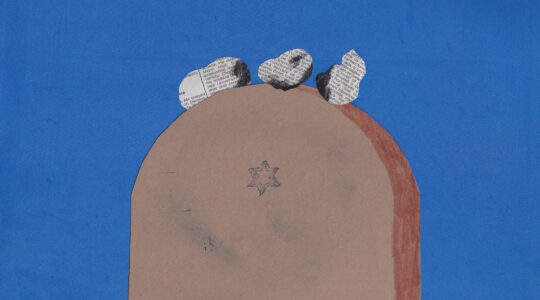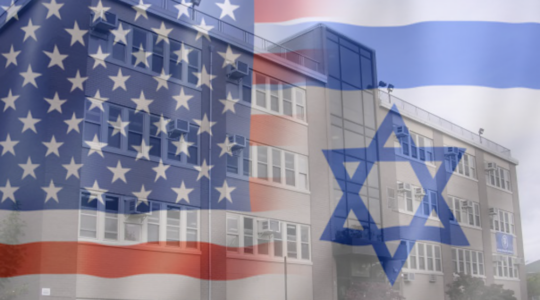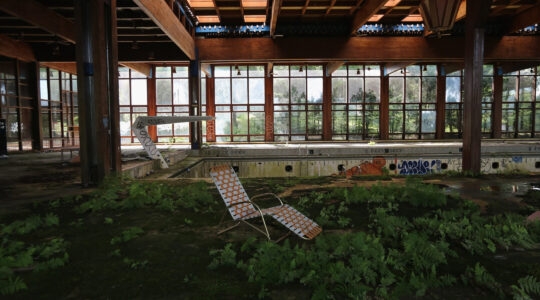Though our world and Western society are forever changing, and many people bemoan the loss of “the good old days,” the annual American tradition of Thanksgiving is coming, as it does every November in the United States. The name of the holiday serves its purpose well: to remind us to give thanks for our blessings. And in Judaism we have a wonderful “first thing in the morning” blessing of giving thanks every day… giving thanks that we woke up and can still breathe! It’s not something to be taken for granted at all … and it is easy for me to be thankful for the simple things in my life, the things that I might not pay attention to because they have always been here, such as air to breathe, water to drink, enough food to eat, clothes to wear, a roof over my head, warm clothes and a heated home in the cold season, a loving family…really I don’t actually need anything more than that, and I have so much more.
As a parent, I spent lots of years trying to teach my now young-adult children to have the perspective to be able to recognize the blessings in their own lives, to recognize that “there but for fortune” (to coin an old Phil Ochs song) their lives could be far less comfortable, and though perhaps their circumstances are less than Hollywood fantasy movie-ish, they have so much to be thankful for. Both have definitely grown to understand that, but…my youngest struggles on a daily basis to maneuver the world with autism, Sensory Processing Disorder, anxiety and severe learning challenges.
While he definitely has much to be thankful for, and certainly “there but for fortune” he would not be where he is today, it is also very true that the world he walks through is not at all the same world that I walk through. He often says to me, “You have no idea what it is like to be me.” This sentence became the title of a song that I wrote in an attempt to explain Sensory Processing Disorder to teachers and community members who do not understand the seemingly pointless melt-downs that happen in public for so many children and young adults these days.
Having a son with autism has taught me compassion on a very deep level. I do think that as a young adult I suffered from “ableist” arrogance: I was very capable academically, I could play music and sing, I could run and do athletics, I could speak and hold my own in intellectual small talk and crowd banter, I could walk through the streets of Jerusalem (my home in my twenties) and pay attention to everything that was happening, but then turn all of that stimulation off and relax at home once I got there. None of these daily activities ever crossed my mind as something that everyone couldn’t do, as something to be thankful for. In retrospect I realize how very naïve I was of course.
My son is a kinesthetic learner, and excels at his passion, drawing and animation. He is also a talented singer. But that is where the overlap between his skills and the skills I had at his age end. He struggles to retain facts taught in academic classes. He says his brain literally hurts when he is trying to memorize details. He cannot run or coordinate his body well. He cannot follow small talk on any level; growing up in an intellectual Jewish home has made him far more insecure in this area than had he grown up in a home with people who were less talkative. But more than anything, walking through the streets of Columbus, Ohio, where we live now, is one long string of stressors and fears.
Ableism and othering go hand in hand. Having been thrust into the world of special needs by virtue of my son, I have been given the gift of needing to understand the world through eyes that do not see what I see. Ableism is a word that has been coined to refer to how much of western society is structured, under the assumption that everyone has the same physical abilities, and that if you have a “disability” you are inferior. Othering is when you choose to differentiate between those you think are similar to you, in whatever way you are choosing to define yourself, and others who are different and therefore not part of your “group.” We live in a time where othering is rampant and dangerous and very much in the spotlight. Ableism is much more subtle, especially in the case of autism and Sensory Processing Disorder, which are conditions that are often invisible to the external eye.
I know that my son suffers from Sensory Processing Disorder and I can often help him through overload. But what about the person on the street who is clearly having a hard time, perhaps a person on the street who does not like my bumper stickers or my political pins? I don’t know that person, but I think it is fair to say, just as my son says to me, that I have no idea what it is like to be them.
So, at this time of Thanksgiving, I am consciously saying thanks for the many blessings in my life, from the mundane to the more complex. I am also reminding myself never to assume what someone else should be thankful for, never to assume that I have any clue what someone else’s life challenges are. I am asking all of us, whoever we are, to practice a little understanding and perspective and tolerance as we enter the darkest time of the year…to bring the light of compassion and stop the practice of othering. Because, I/you have no idea what it is like to be them…
Joanie Calem is an autism parent, teacher, songwriter, performer and disability awareness advocate. Since her first year of teaching in 1984, Joanie always had students with diverse learning styles, and learned to adjust her teaching in order to meet students where they are, building from their strengths and helping them learn to strategize their perceived weaknesses. Wearing the dual hat of both teacher and parent of a child with special needs, Joanie has extensive learning in the field of Sensory Processing Disorder. For the past four years she has been leading “concert-conversations” for teachers, parents and communities, sharing original songs as starting points for discussions on how to build truly inclusive communities that allow room for the increasing “neurodiversity” in our world. These sessions focus on understanding how Sensory Processing Disorder presents in classrooms, community settings and other public spaces, and exploring simple strategies that can be put in place to make our environment more sensory friendly for those that struggle with sensory overload.
The New York Jewish Week brings you the stories behind the headlines, keeping you connected to Jewish life in New York. Help sustain the reporting you trust by donating today.




